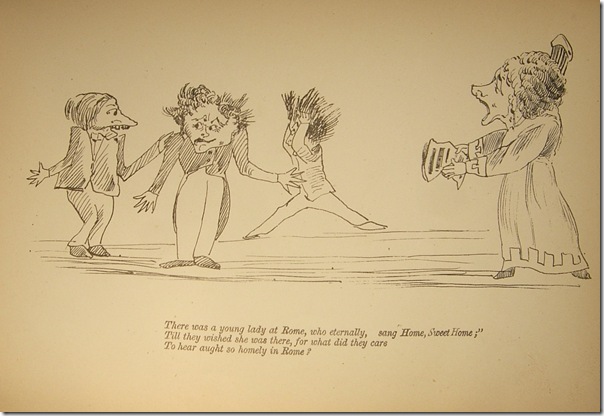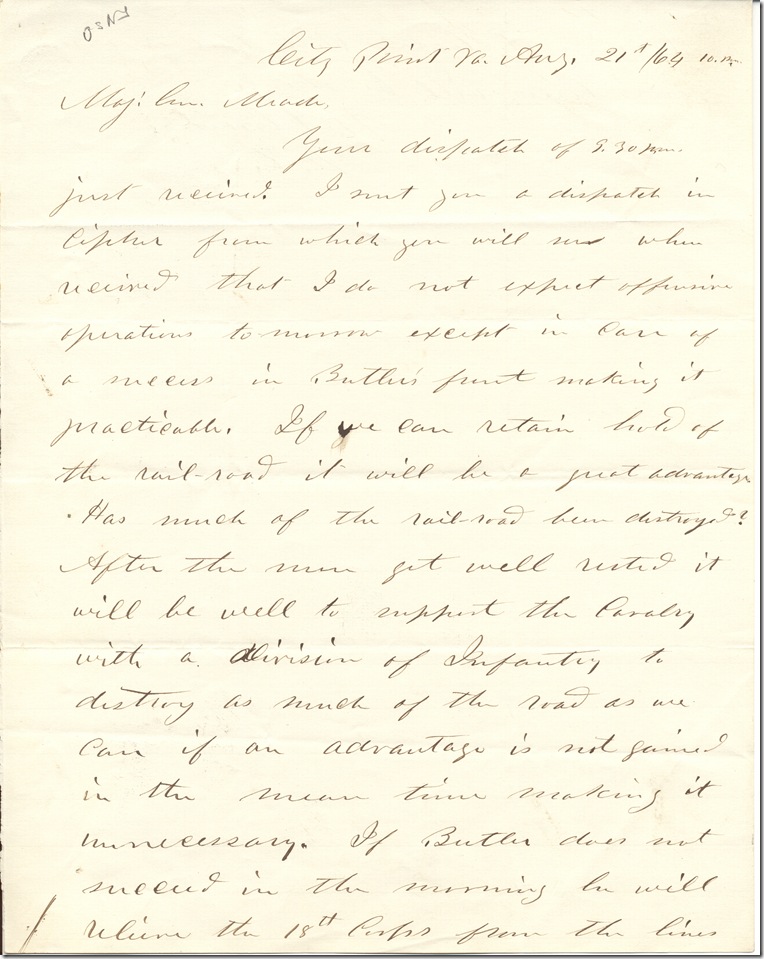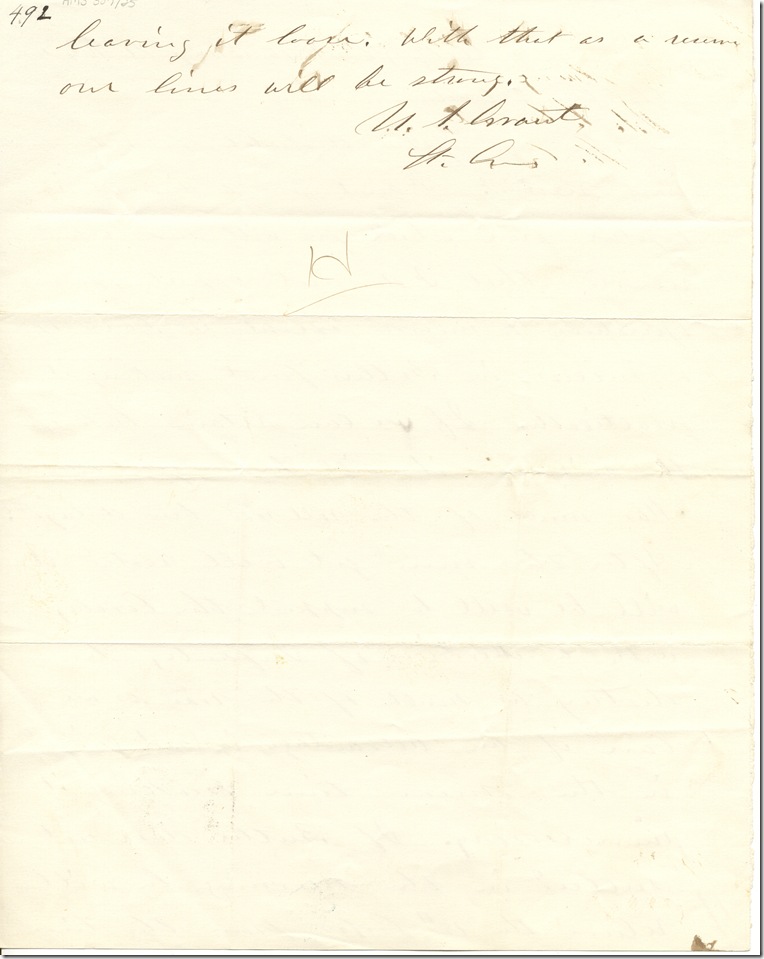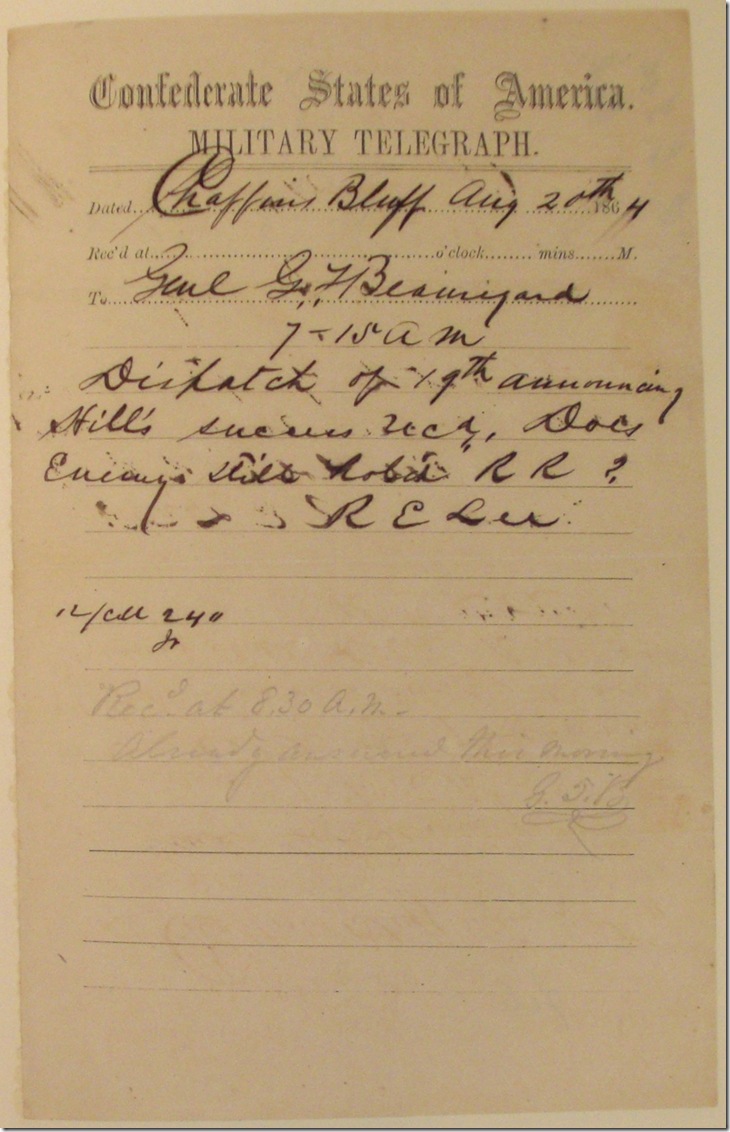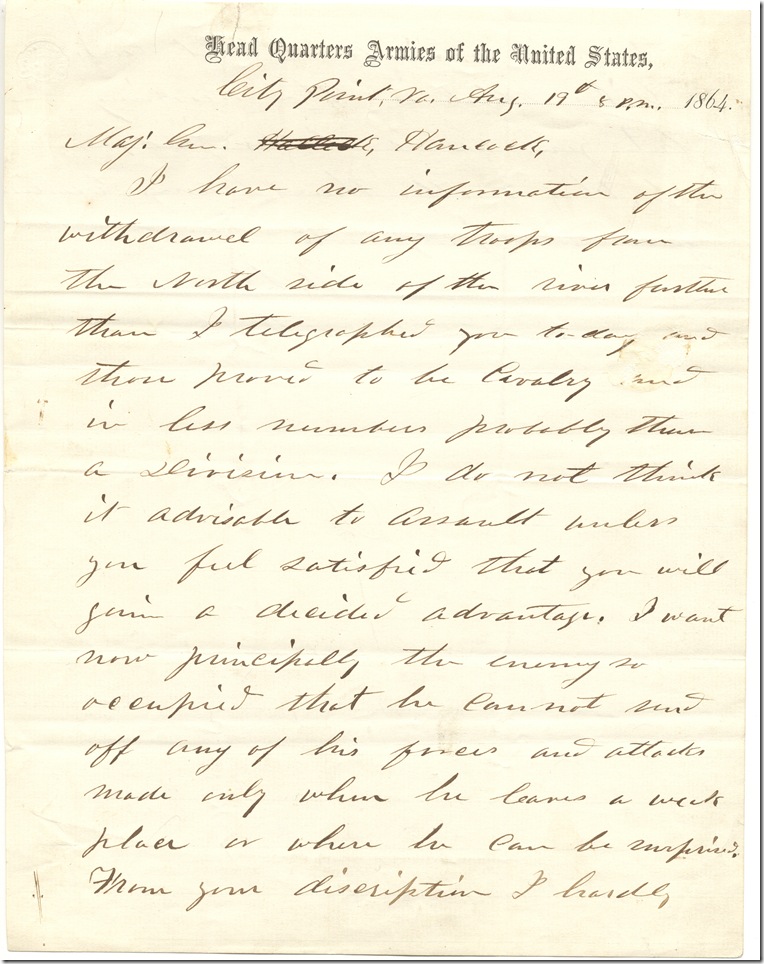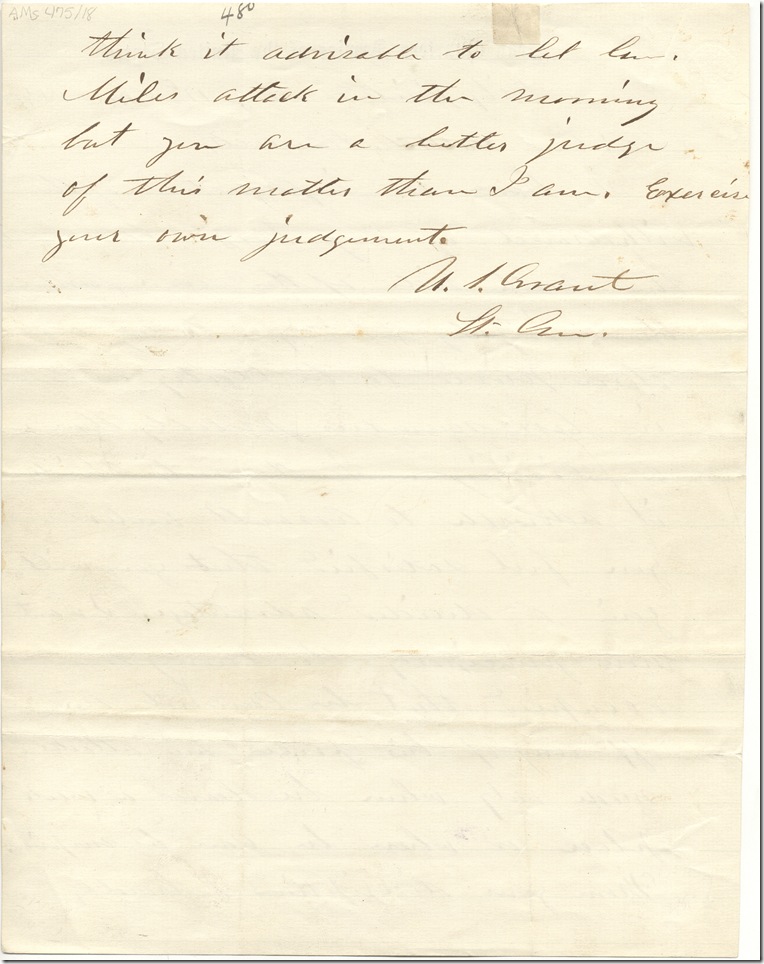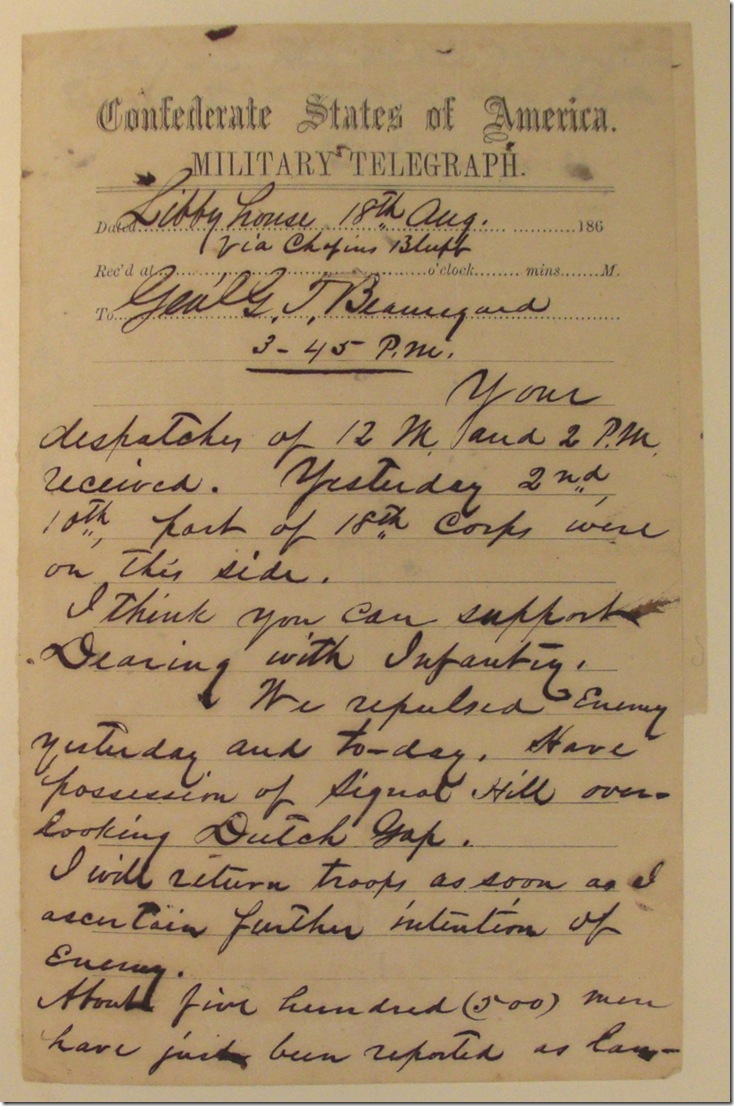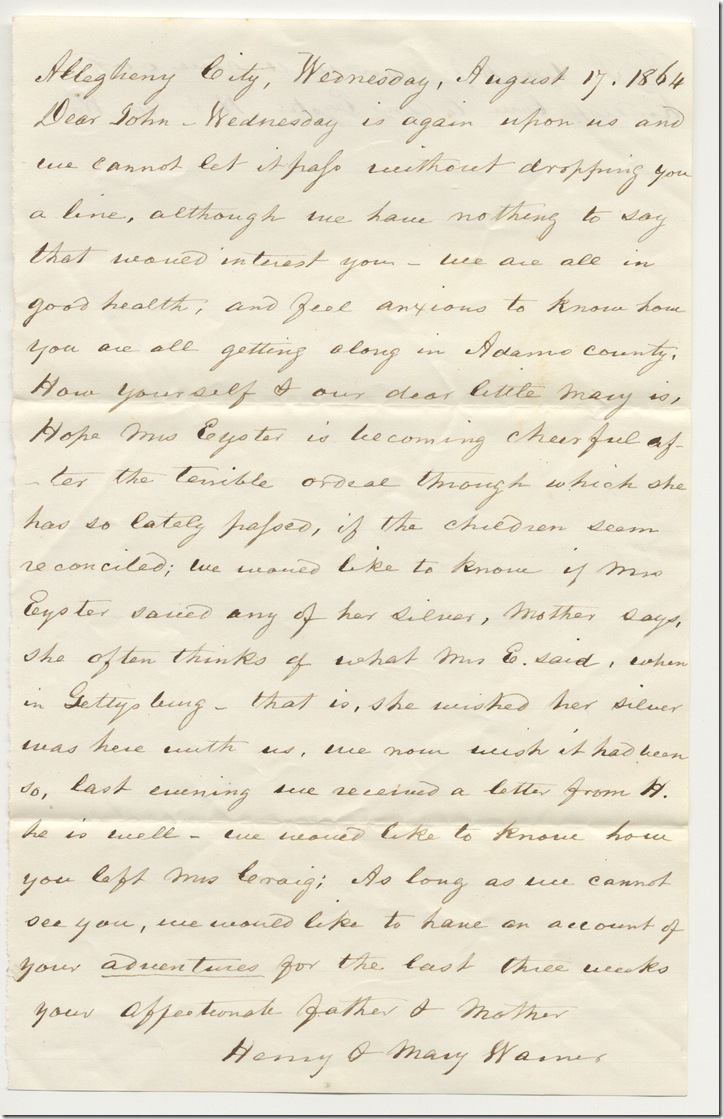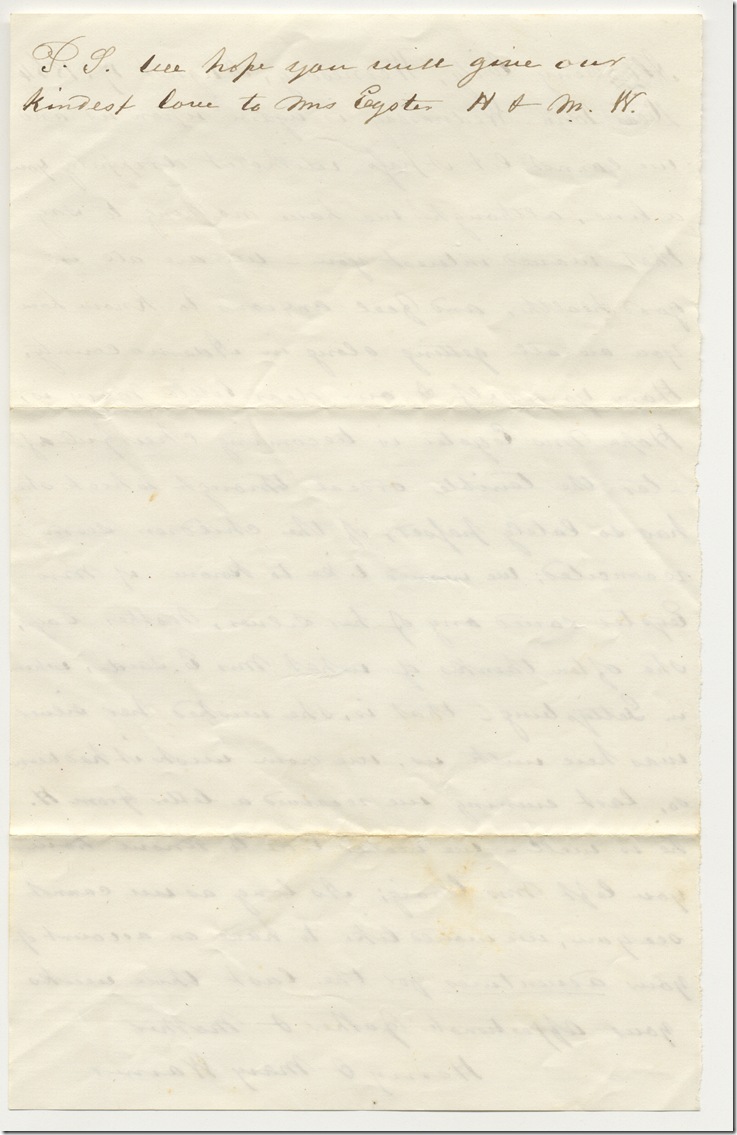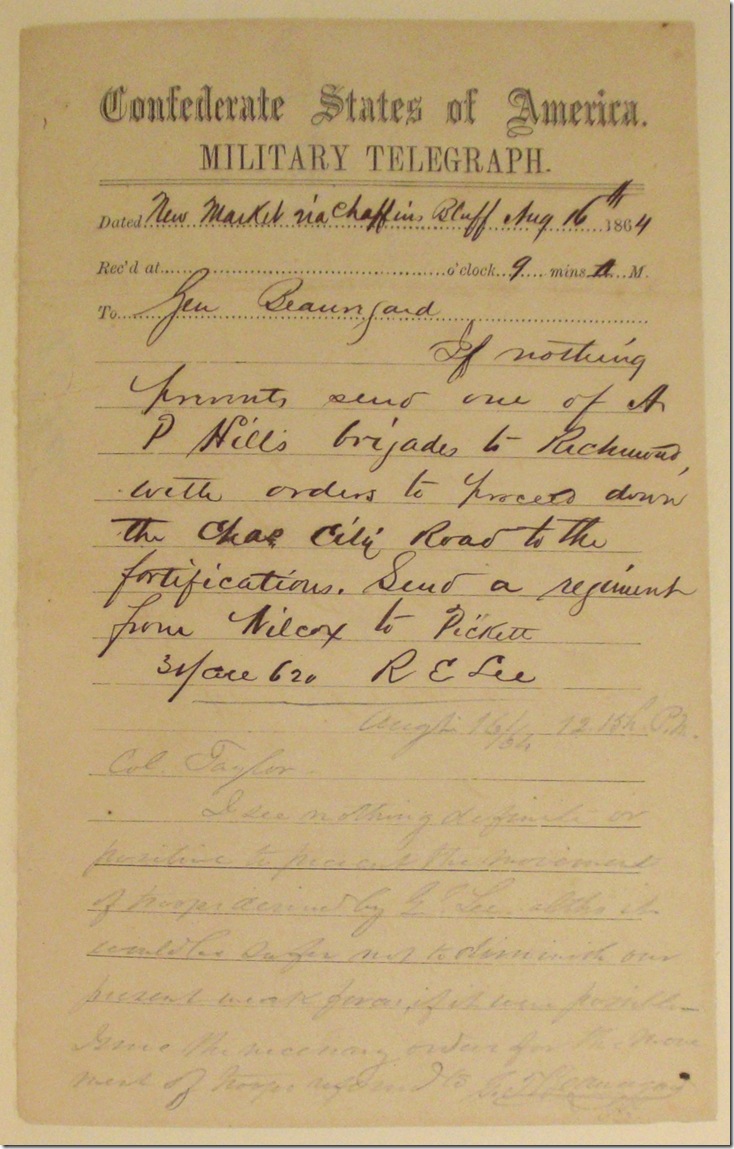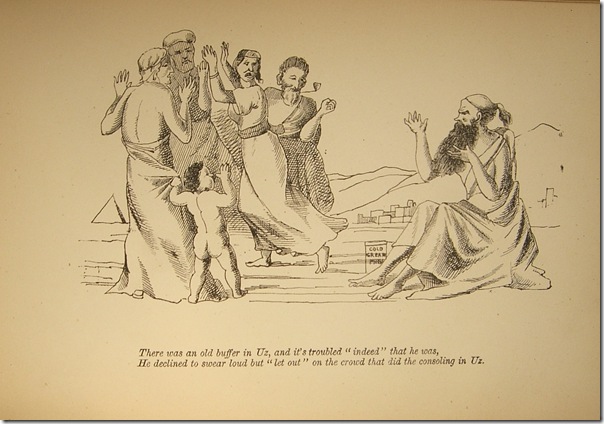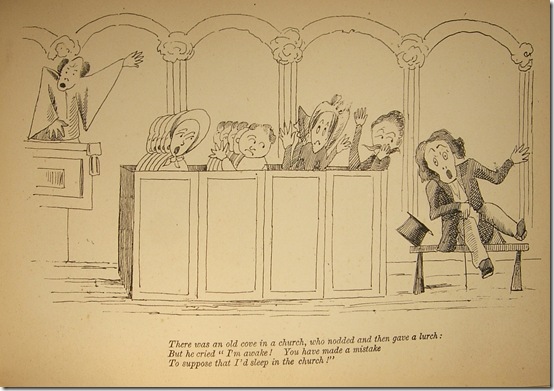Henry and Mary Warner lived in Allegheny City, Pennsylvania, now part of Pittsburgh. They are the great-grandparents of poet Marianne Moore. By the 1860s they had three surviving children: John, Henry, and Anne. Their letters to John, a Presbyterian minister living in Gettysburg, are preserved as part of Marianne Moore’s family papers.
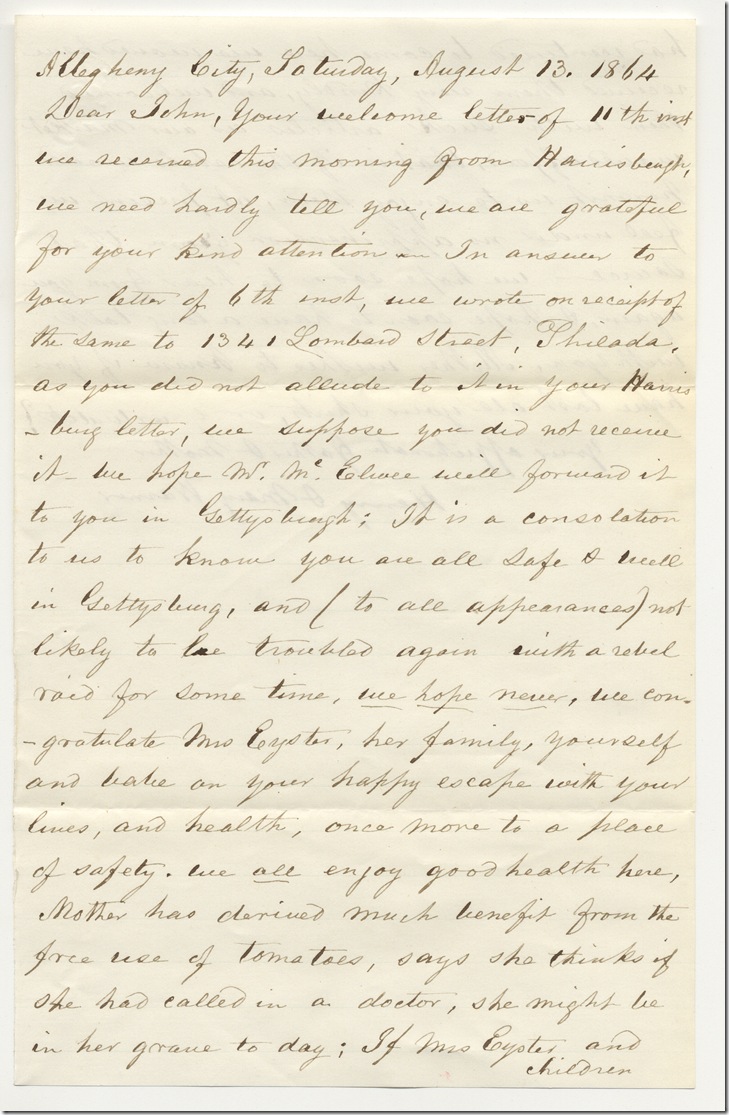
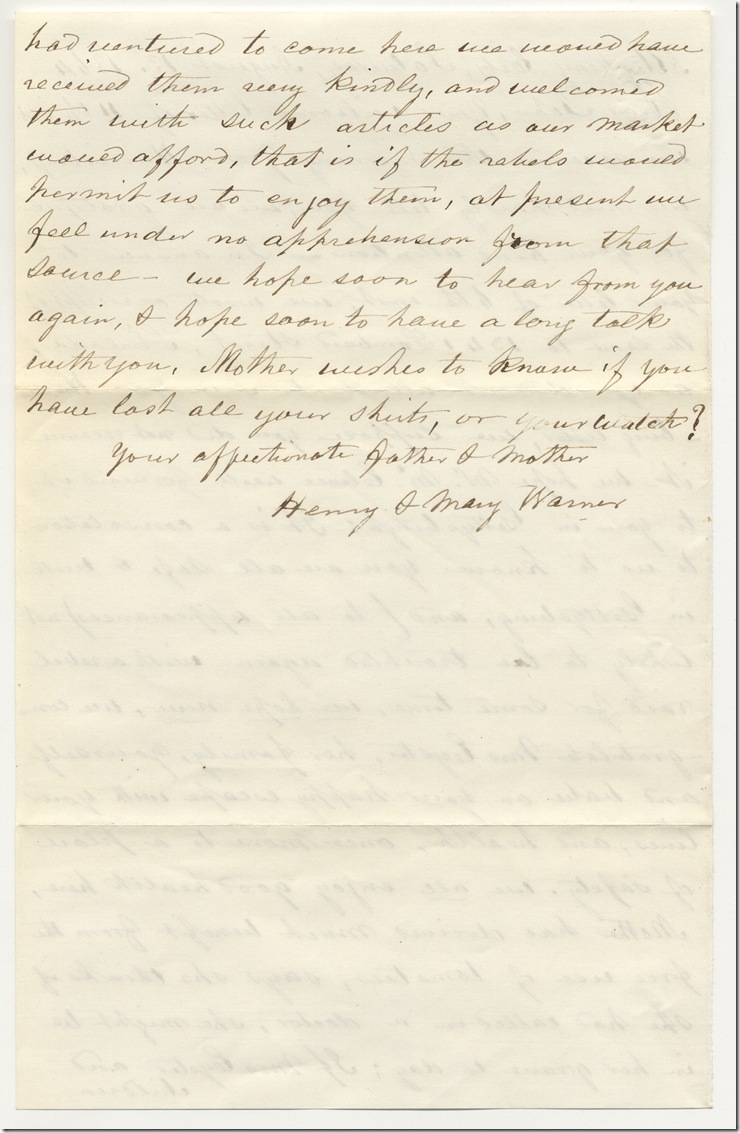
Transcript:
Allegheny City, Saturday, August 13, 1864
Dear John, Your welcome letter of 11 inst we received this morning from Harrisburgh, we need hardly tell you, we are grateful for your kind attention. In answer to your letter of 6th inst, we wrote on receipt of the same to 1341 Lombard Street, Philada, as you did not allude to it in your Harrisburg letter, we suppose you did not receive it – we hope Mr. Mc[Elwee?] will forward it to you in Gettysburgh; It is a consolation to us to know you are all safe & well in Gettysburg, and (to all appearances) not likely to be troubled again with a rebel raid for some time, we hope never. We congratulate Mrs Eyster, her family, yourself and babe on your happy escape with your lives, and health, once more to a place of safety. We all enjoy good health here, Mother has derived much benefit from the free use of tomatoes, says she thinks if she had called in a doctor, she might be in her grave today; If Mrs Eyster and children had ventured to come here we would have received them very kindly, and welcomed them with such articles as our market would afford, that is if the rebels would permit us to enjoy them, at present we feel under no apprehension from that source – we hope soon to hear from you again, & hope soon to have a long talk with you. Mother wishes to know if you have lost all your shirts, or your watch?
Your affectionate father & mother
Henry & Mary Warner
Citation: Henry and Mary Warner, autograph letter signed to John Riddle Warner. Allegheny City [Pittsburgh],13 August 1864. Moore VI:06:8
